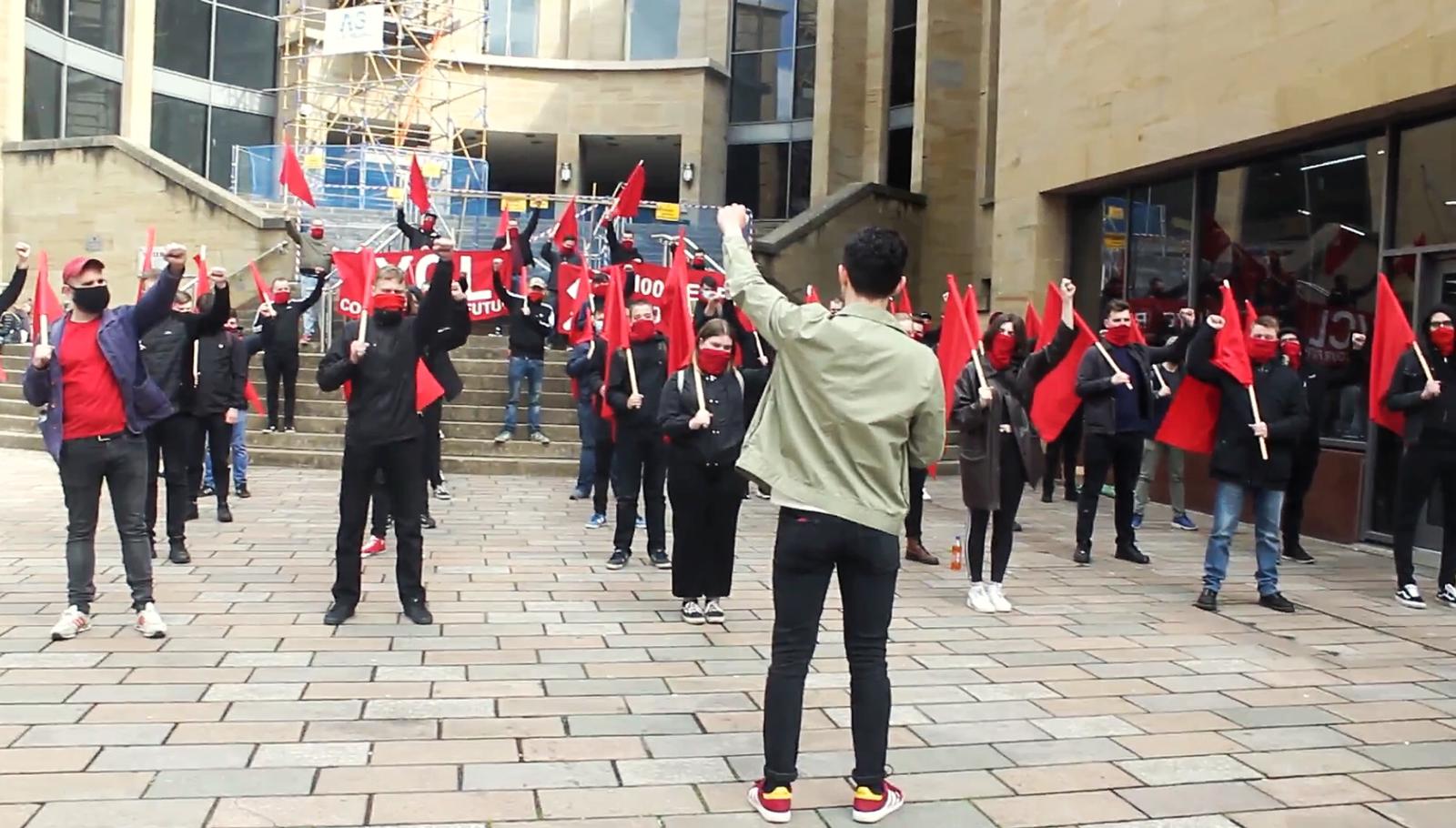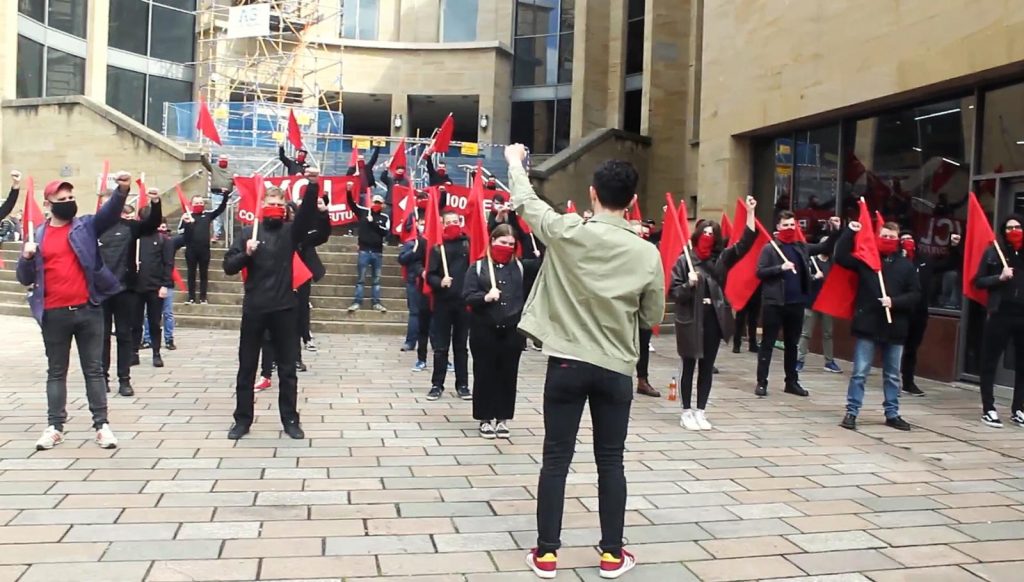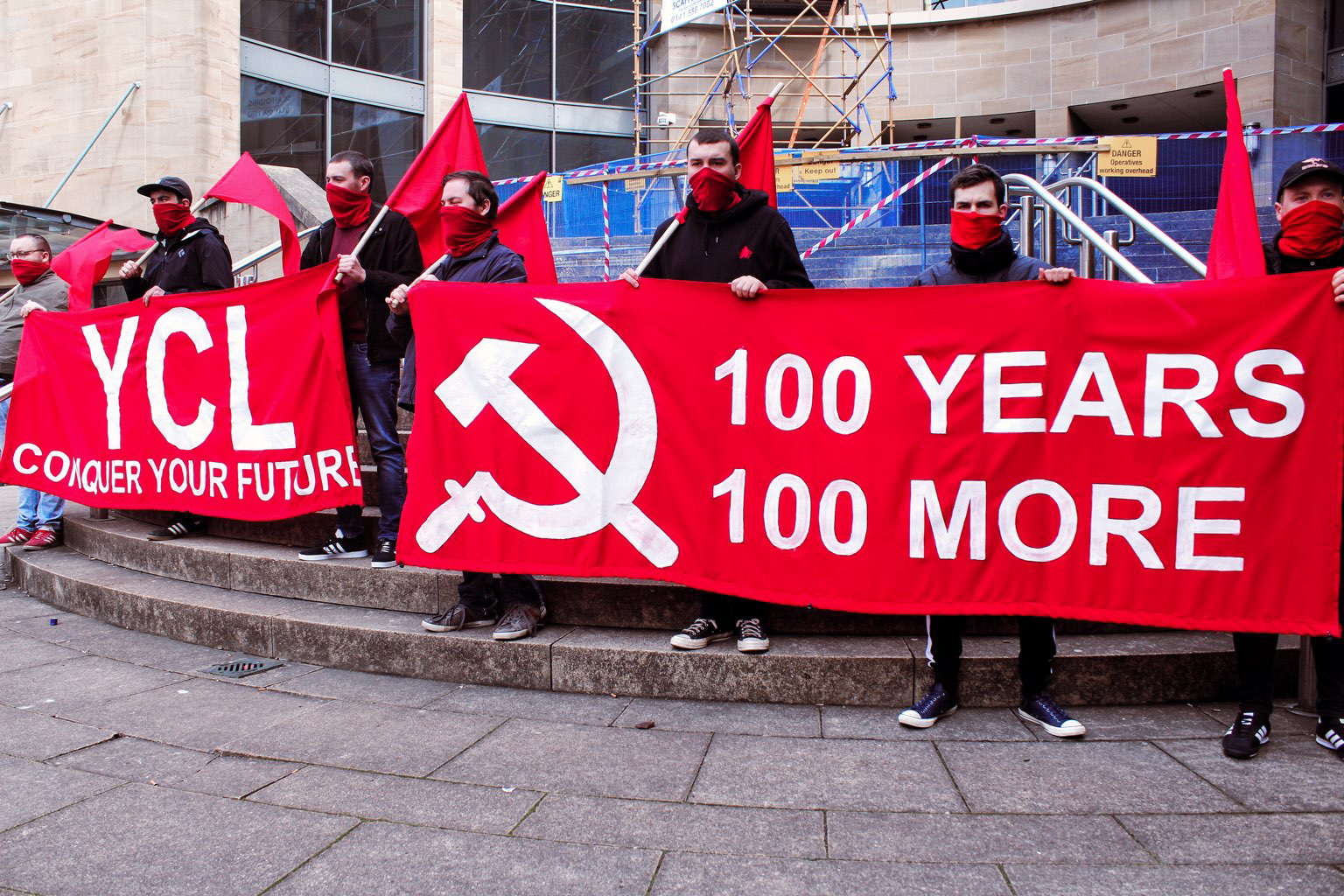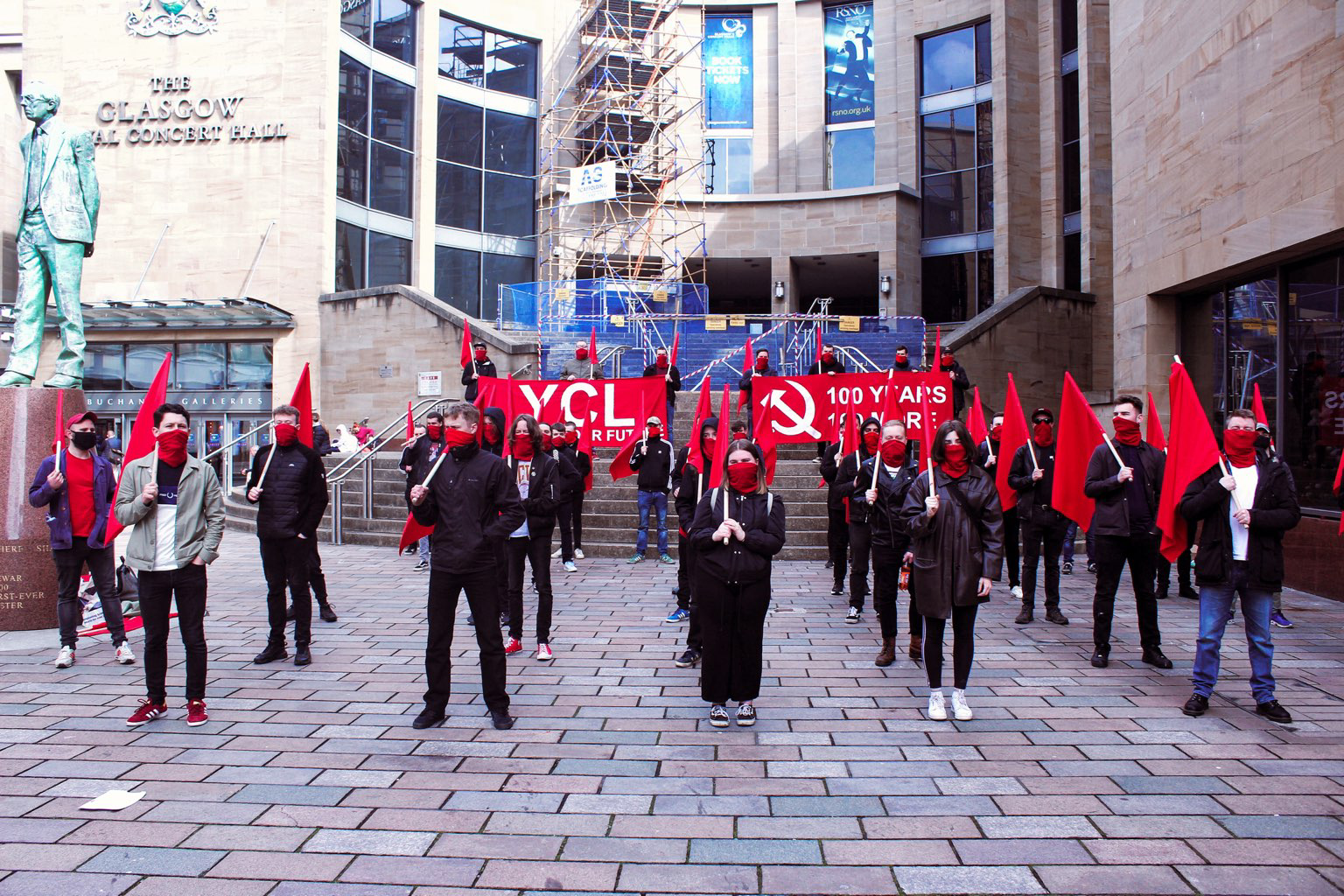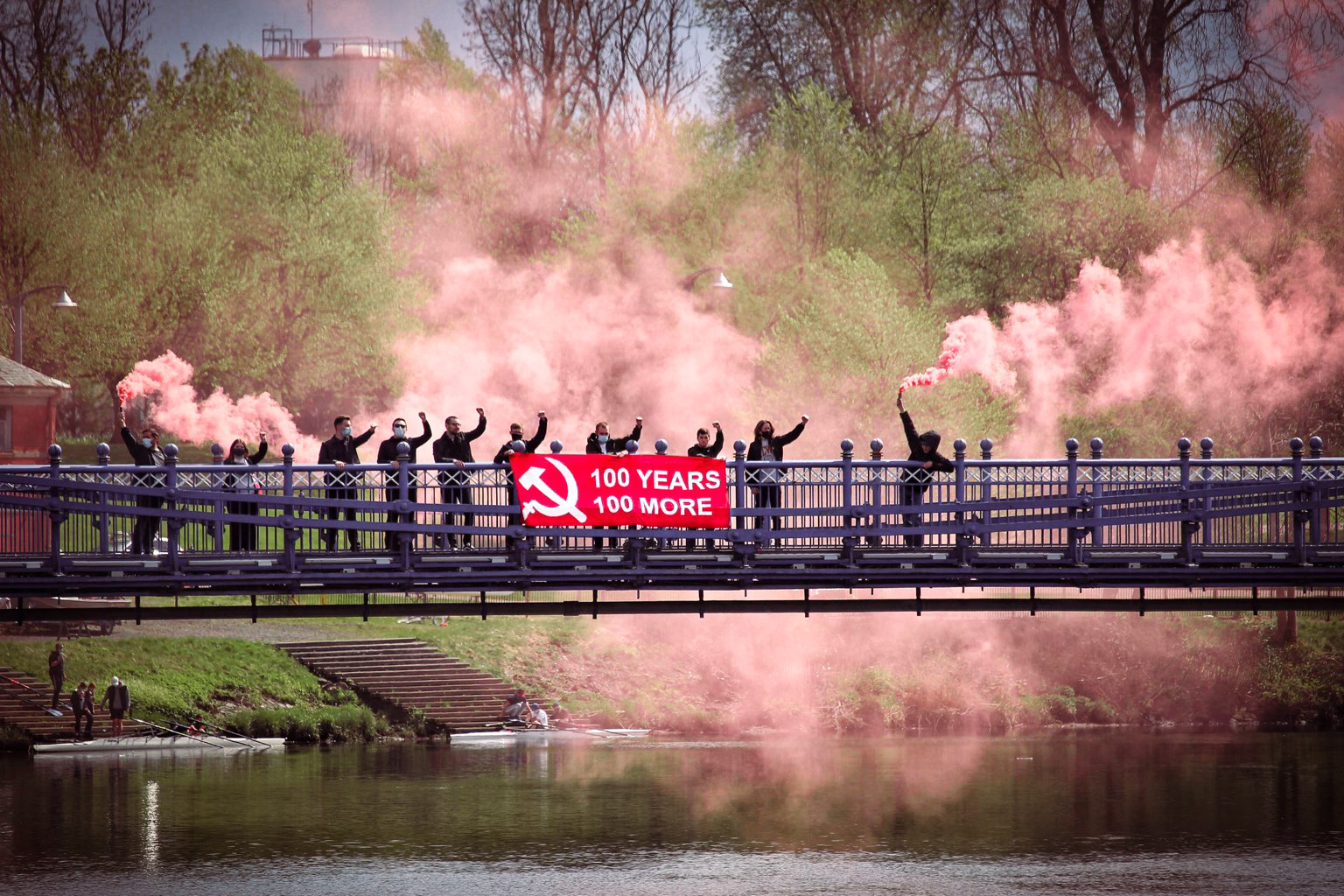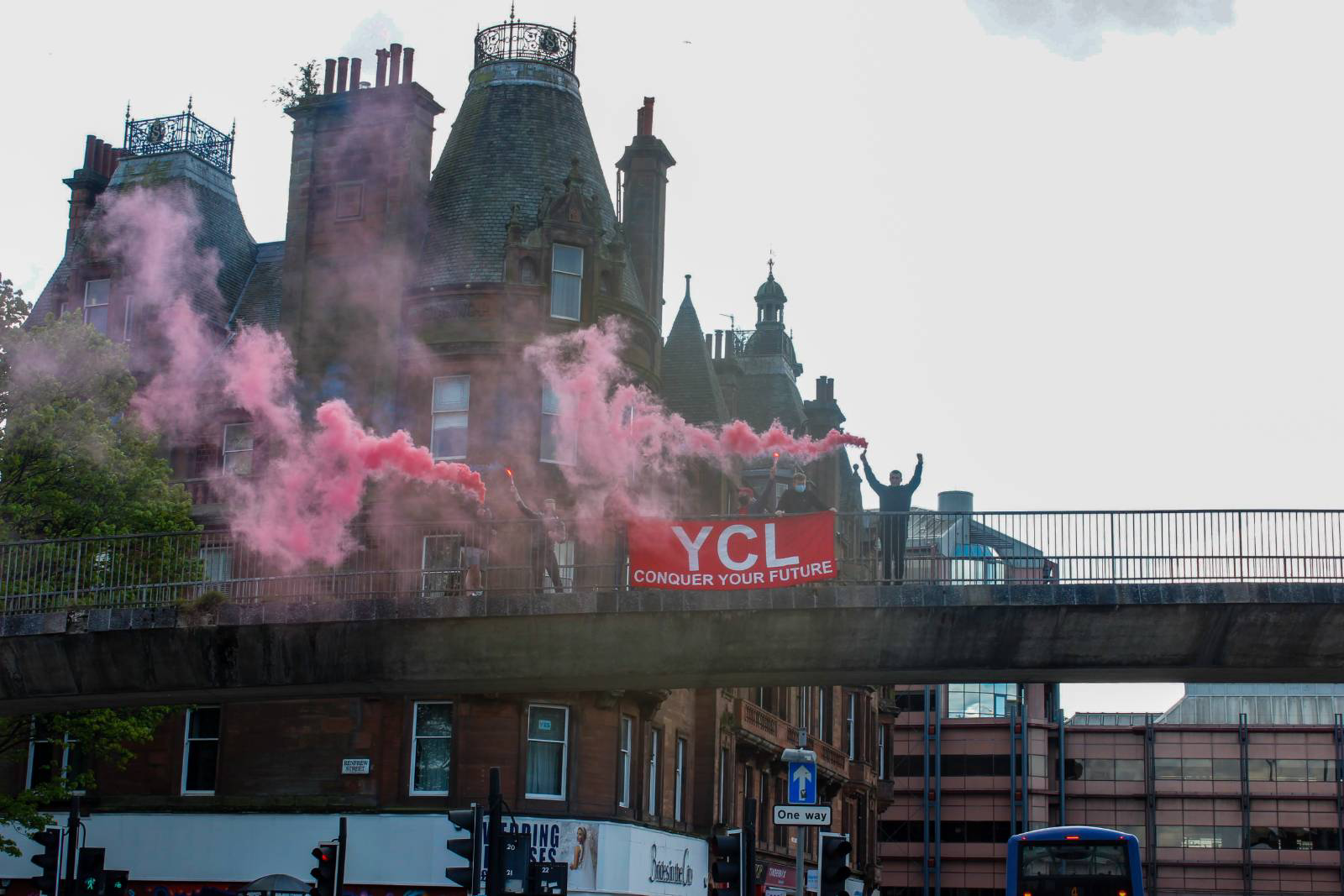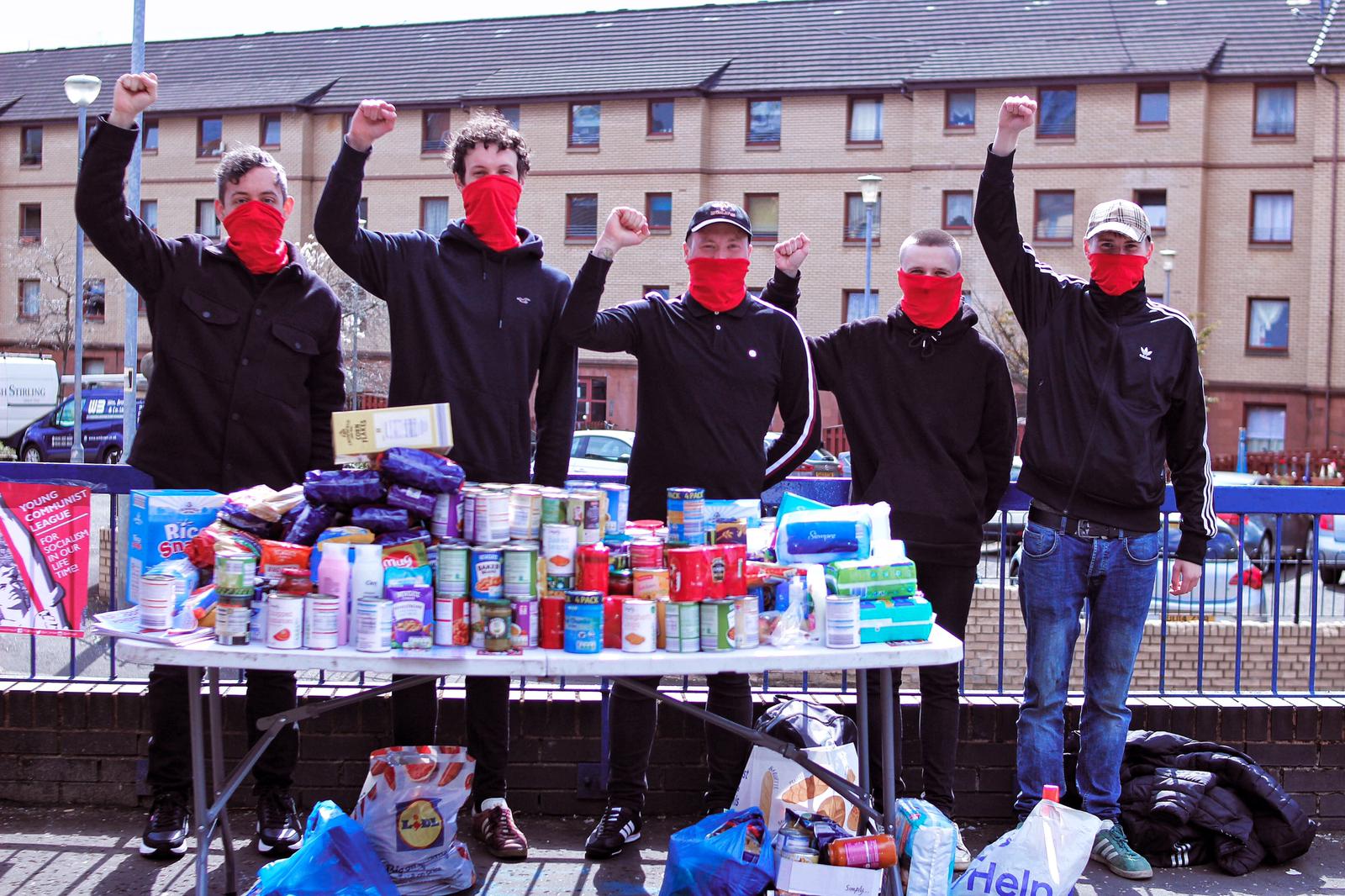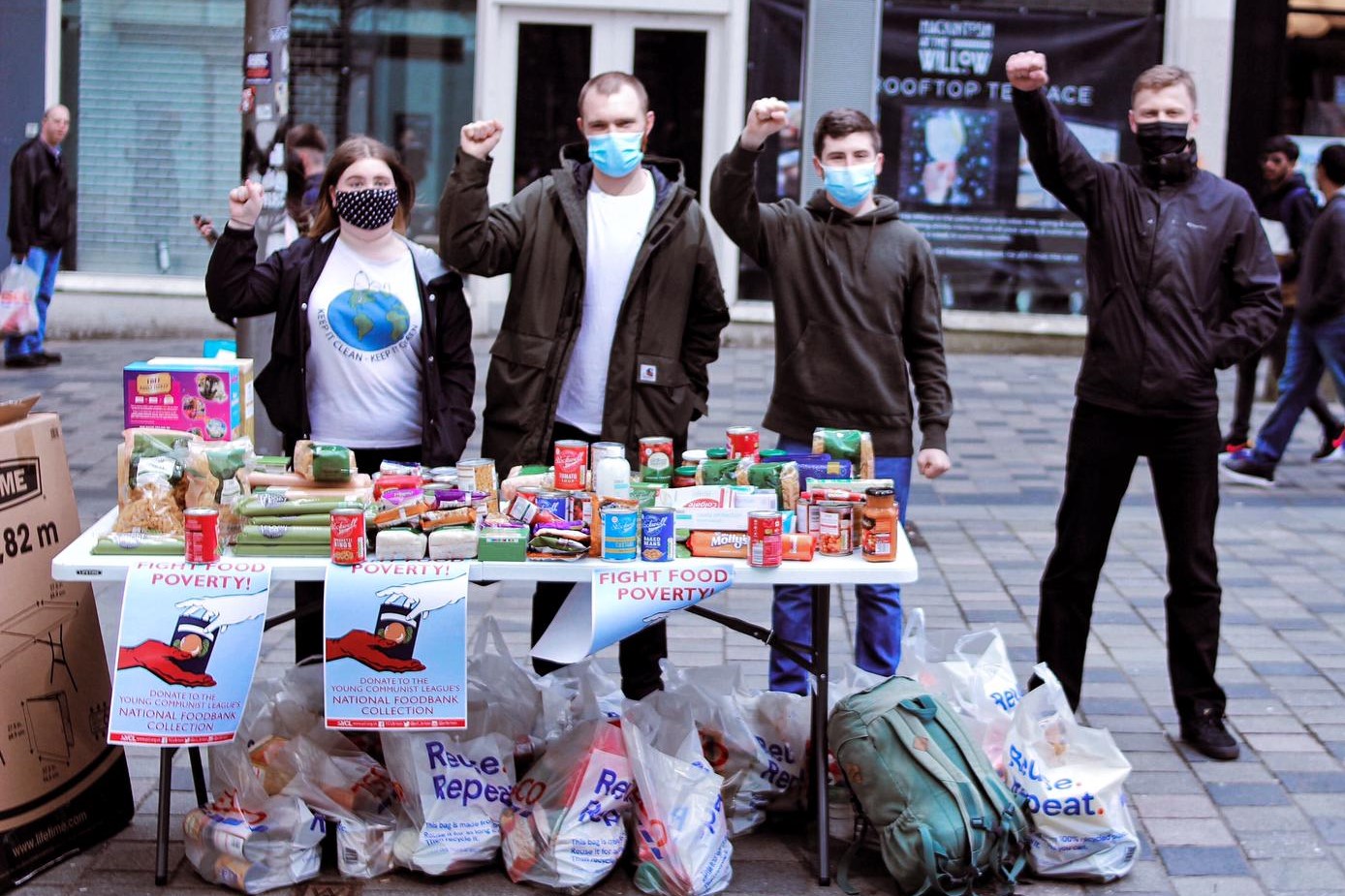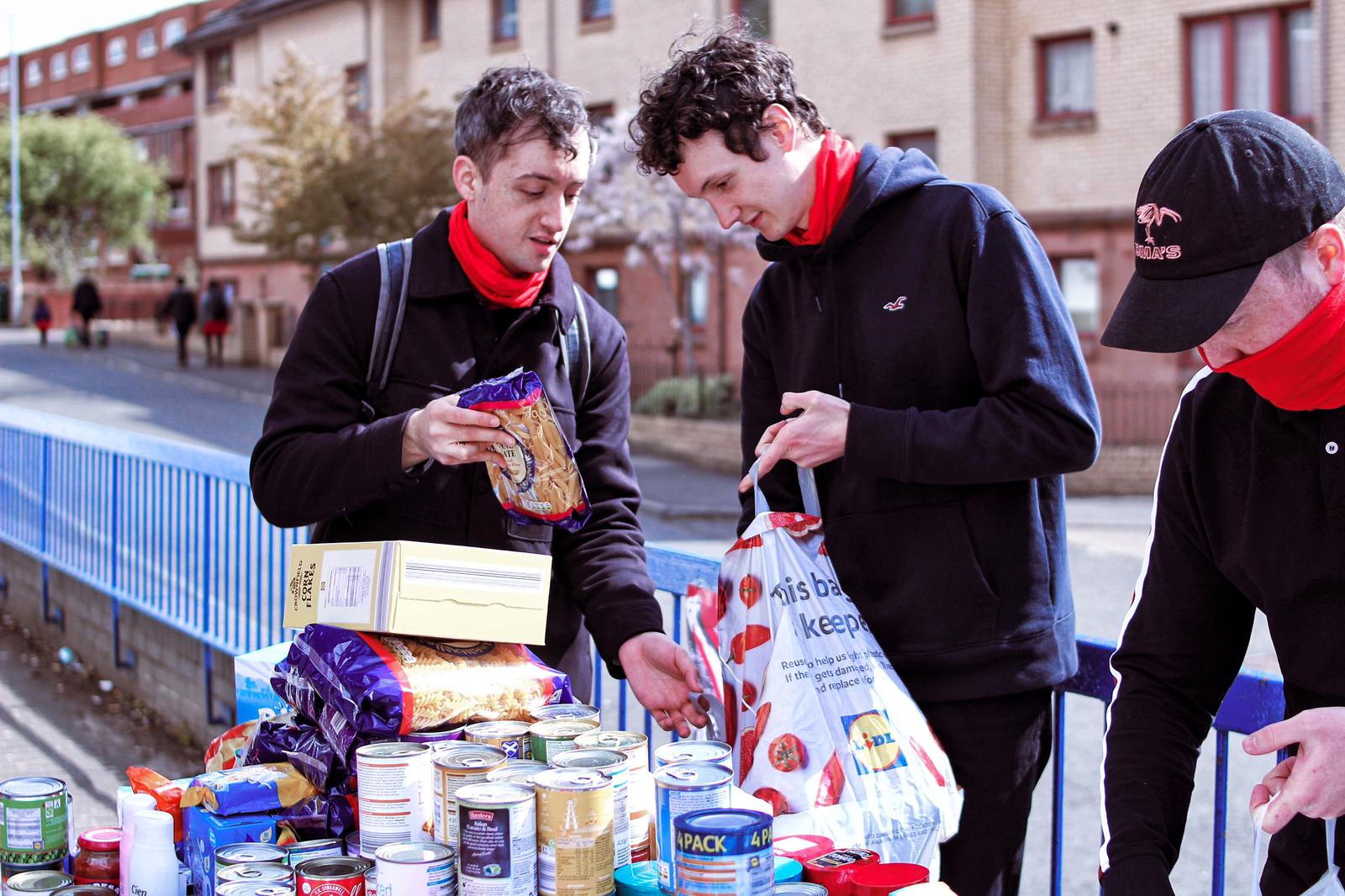
The Young Communist League (YCL) turned out in force to Glasgow on Saturday in a vibrant demonstration marking International Workers Day, just as life resumes in Scotland’s commercial hubs.
Marking May Day, the YCL – the Communist Party’s youth wing – fielded a large group of comrades stood to attention in a vigorous display outside of Glasgow’s Royal Concert Hall, each holding a red flag aloft in front banners celebrating 2021 as the YCL’s centenary year.
Speeches from comrades began just before midday, as shoppers began to bustle through Buchanan Street. Human energy restored to the city after months of heavy lockdown amid the ongoing coronavirus pandemic.
“International Workers’ Day is a celebration born out of the struggles of working people in Britain and across the planet,” said Johnnie Hunter, the CP candidate on the Glasgow Regional List at the upcoming 6th May elections.
Addressing the distanced and uniform cadre, Hunter urged YCL members to “rededicate” themselves to the fight for “peace, democracy, and socialism.” He added that the May Day demonstration highlights a moment where “workers of the world join together to celebrate our historic and unfinished struggle.”
He outlined achievements of the proletarian movement, including the eight-hour workday, an end to child labour, trade union rights, the defeat of fascism, and the formation of the welfare state.
Regarding the encroaching election campaign, the Holyrood hopeful explained that he is standing for the Communist Party on the Glasgow Regional List because “working people need a radical change after 14 years of Tory and SNP cuts and incompetence“.
The demonstration comes as the Communist Party stands its largest number of candidates since the 1980s for the upcoming local elections across Britain later this month, including contesting Scottish parliamentary seats.
Matthew Waddell, who is seeking the Lothian Regional vote for the CP, described the May Day event as a “show of strength” for the YCL, contrasting their organised showing with the “scraggly, rag-tag” nationalist and unionist groups who had concurrently occupied Glasgow’s George Square.
“Class politics is far from dead”, Waddell stressed.
He continued, saying that his aim, as a revolutionary, in capturing the Edinburgh seat is to “alleviate some of the immediate stresses and pressures of the working class” and combat the “unacceptable quality of life” for most people under capitalism.
“We are a revolutionary organisation. We are the only party that’s bringing a manifesto with a plan that wants to take not just the Scottish but all the peoples of Britain from capitalism into socialism.”
“It’s a lot bigger than just another party. We work outside parliament 24/7 and organise whenever there is class contradiction“, he added.
Promoting an anti-capitalist platform, Communist candidates argue that the British state has failed to respond effectively to the Covid-19 pandemic due to its primary consideration for commercial interests over those of the working class.
The party cites the examples of Cuba, Vietnam, and China, where communist parties hold the predominant governing positions, in successfully managing to quash the virus. They also call for full public ownership of the National Health Service and the empowerment of local authorities, including a federal arrangement for the constituent nations of the UK.
English YCL branches also gathered in London on Saturday to celebrate the occasion to demonstrate workers’ rights and a socialist future.
A virtual rally was held by the Communist Party later the same day, as coronavirus restrictions remain in the UK. Party leader Robert Griffiths and candidates from across the country addressed the event.
Over a Century of Struggle
In August 1921, the original YCL was set up by merging the Young Workers’ League and the International Communist Schools Movement. The 1st of May display shows that the organisation remains a substantial force within Britain’s political left, despite both victories and setbacks for socialist movements throughout history.
International Workers Day traces its legacy back even further, established in 1889 by socialist groups and trade unions in the United States to commemorate the Haymarket Riots in Chicago three years prior.
On the 1st of May 1886, labourers striking for an 8-hour workday were gunned down by police, who opened fire after an unknown perpetrator threw dynamite at law enforcement. The violence led to the deaths of eight people, and despite a lack of evidence against them, eight activists were later convicted. Today, the 1st of May is an event of activism, protest, and tribute for the global working class. In the socialist nations, it became a gigantic public occasion and is now celebrated worldwide as a national holiday, including in Britain.
Jason Dunn

